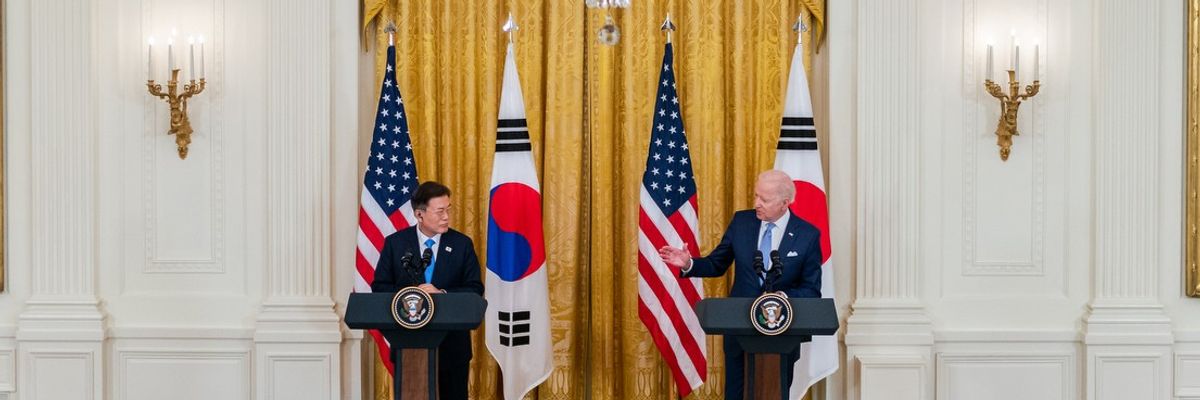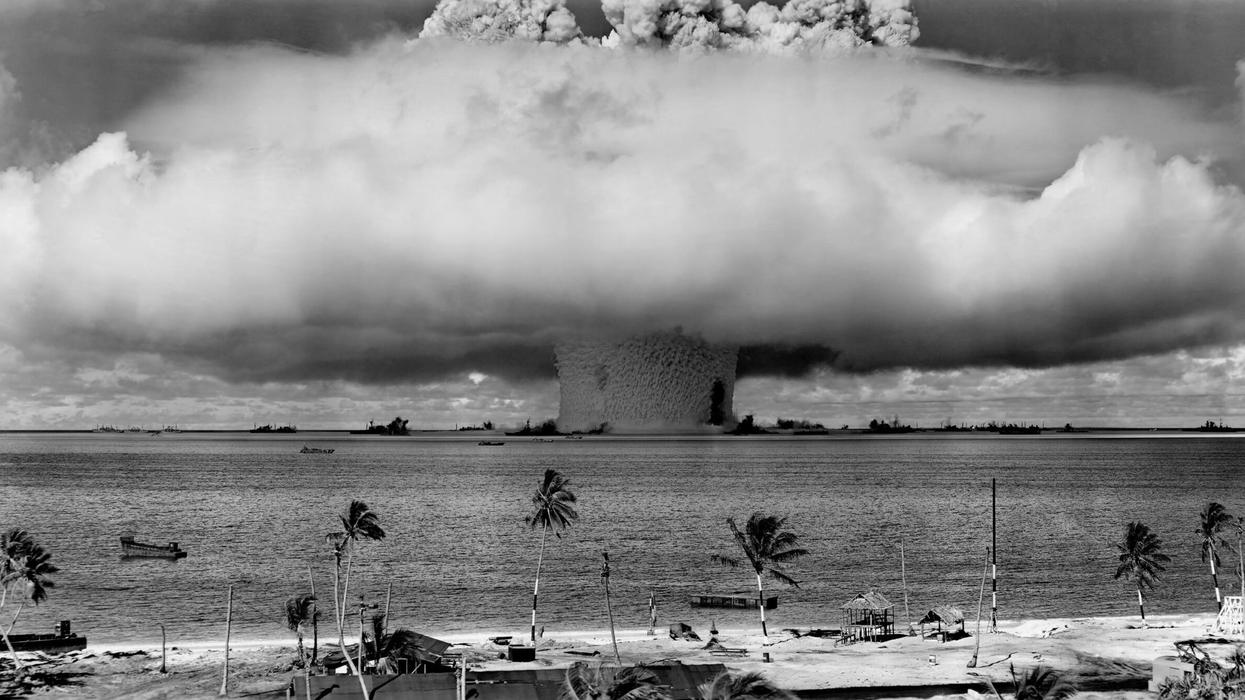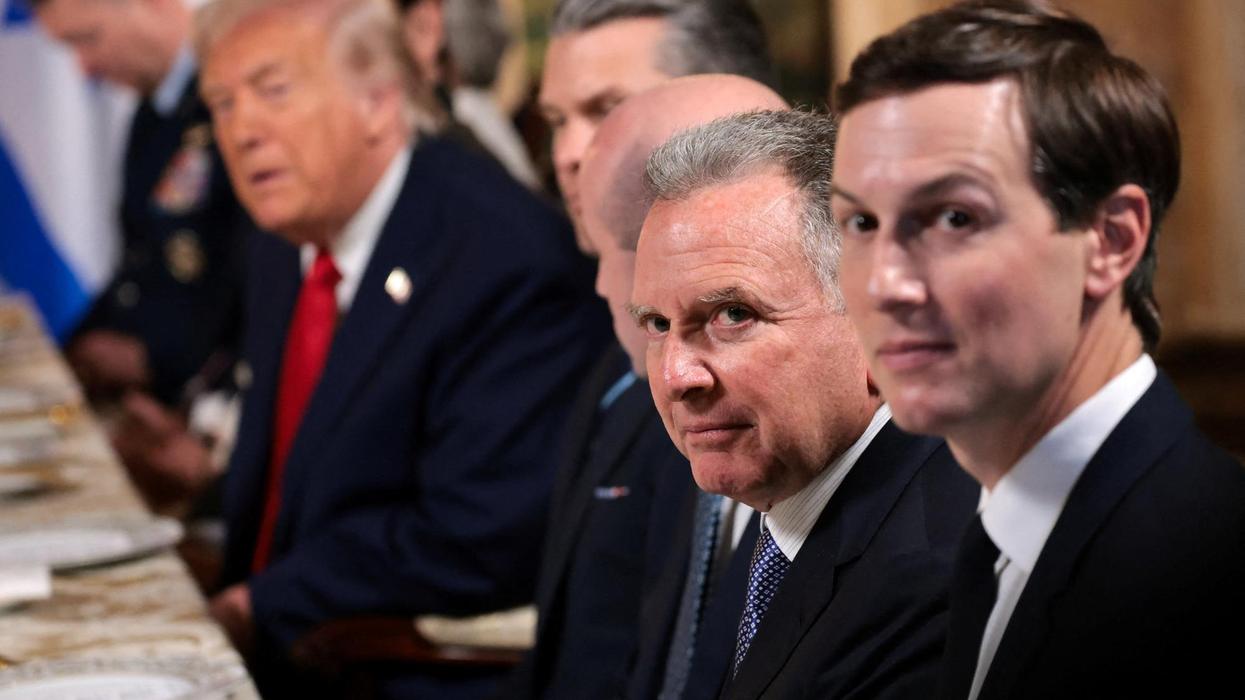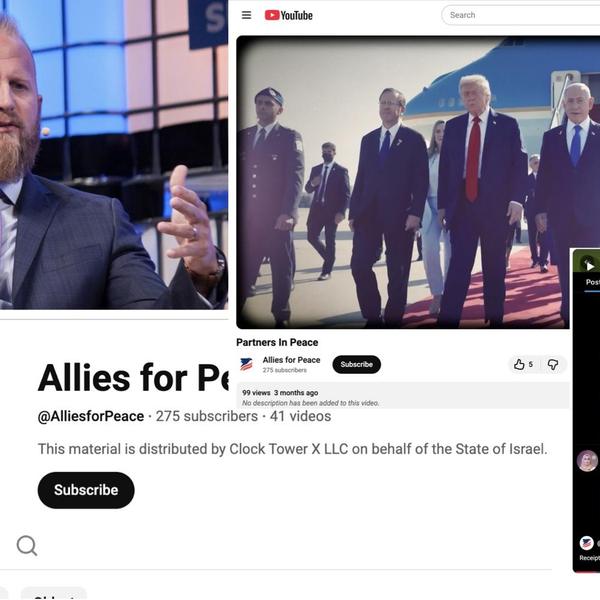Wednesday's dual ballistic missile test in the North and submarine-launched ballistic missile test in the South underscores yet again the urgent need for diplomacy, both between the United States and North Korea and between regional stakeholders. An apt metaphor for the current situation may be a ticking time bomb, one that President Biden could have prevented through diplomacy in his early days in office. In the midst of a brewing arms race between enemies of the Korean War, the Biden administration must take stock in how we got here and U.S. responsibility for the militarization of the Korean Peninsula.
It is critical for American policymakers to understand that the United States is not an innocent bystander to this slow-moving crisis. So far, the Biden administration has yet to offer details of its “calibrated” strategy to reduce tensions on the peninsula or proposed specific confidence-building measures that could lead to a resumption in talks. Nor has it offered a clear strategy on when blunt tools of economic warfare such as sanctions are justifiable in the face of evidence that they disproprotionately harm noncombatants and impede humanitarian aid delivery.
A more flexible sanctions regime that is linked to progress in denuclearization, or other types of threat reduction steps such as eliminating North Korea's chemical weapons, could offer a more practical pathway to tackle harder questions such as denuclearization. Yet the United States so far has not demonstrated leadership in the North Korea challenge, leading Koreans on both sides of the 38th parallel to conclude that only an expensive arms race could provide security.
U.S. Special Representative for North Korea Policy Sung Kim’s recent comment that the United States would be willing to provide humanitarian assistance to North Korea regardless of progress in denuclearization is a good first step, but much more is needed to reduce tensions on the peninsula. Ever since the Hanoi talks broke down in February 2019, there remains a near-total absence in trust between Washington and Pyongyang. Both sides blame each other for the summit’s failure and accuse one another of sabotaging prospects for dialogue, whether it is through the U.S.-ROK joint military exercises or testing of cruise missiles and ballistic missiles.
The current situation has serious implications beyond geopolitics, with potentially negative consequences for eradicating the COVID-19 pandemic. As a North Korea and public health expert told me, North Korea is unlikely to accept any aid from the United States, including COVID-19 vaccines, because it believes Washington will politicize it.
The Biden administration has placed a great deal of emphasis in engaging with allies to restart talks with North Korea but the merits of such an approach has not been fully scrutinized, to the detriment of sound policy making and public accountability. Key questions remain about President Biden’s North Korea policy. For example, are Japan and South Korea aligned with the United States in a plan of action to achieve peace and stability on the Korean Peninsula? What about a strategy and timeline for implementing such a plan? At what point would Japan be willing to set aside the abduction issue, or would South Korea be willing to impose a moratorium on developing strategic weapons, or would the United States provide partial sanctions relief, in order to advance peace and stability on the Korean Peninsula? Perhaps most vexingly, how exactly does the trilateral, allies-based framework contend with Beijing’s equities on the North Korea challenge?
Answering such questions would help all sides find off-ramps from the current diplomatic stalemate and reduce tensions on the Korean Peninsula. It would also prevent President Biden from getting dragged into a large-scale conflict in defense of its ally South Korea.
A significant portion of the American public is open to the hypothetical idea of deploying U.S. troops into active combat. A public opinion survey conducted by the Chicago Council on Global Affairs found that 52 percent of Americans supported using the U.S. military to defend Taiwan from China. But the war in Afghanistan demonstrates that public attitudes shift once costs are incurred as a Pew poll found that 54 percent of Americans supported the withdrawal from Afghanistan.
Americans today are more attuned to the perils of open-ended conflicts and policymakers must realize the costs of a conflict in the Korean Peninsula would dwarf the post-9/11 wars.
















